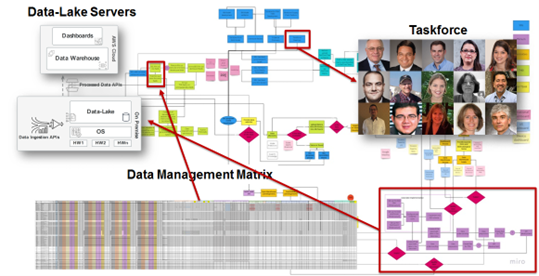Issue:
To assess and manage the state of risk of any given U.S. supply chain extending across North America (MEX-USA-CAN), it is necessary to account for its complexity and for all evidence available to characterize it. This is facilitated through the integration of a Data Lake System (CBTS-DLS) coupled with a Data Management Workflow(CBTS-DMWF), supporting the development of a set of supply chain Case Studies, where each, includes the formulation and validation of a Risk Minimum Viable Model (i.e. a Bayesian RMVM), and its corresponding calibration and testing.
Objectives:
- To assess and expand the current U.S.-Mexico Taskforce membership to include Canadian representatives
- To expand the CBTS Data Lake System (CBTS-DLS) from the previous taskforce project to add the computational infrastructure needed for producing probabilistic risk analytics and for adding backup capabilities to CBTS-DLS.
- To update the design and operation of the current CBTS Data-Management Workflow (CBTS-DMWF) to provide a common computational research convergence platform, to make use of datasets, and to facilitate production of dashboards associated with each R19 case study.

Value Proposition:
To provide U.S. supply chain stakeholders operating in North America (MEX-USA-CAN) with the best actionable information and available resources to improve their operational decision-making, based on the assessment and management of the supply chain state of risk.
| Project Lead | Texas A&M University – College of Engineering |
| Research Team | PI: Zenon Medina-Cetina, Ph.D., Texas A&M University (TAMU), College of Engineering, College of Geosciences Co-PI: Dennis Gorman, Ph.D., TAMU, School of Public Health Co-PI: Julie Loisel, Ph.D., TAMU, College of Engineering College of Geosciences |
| Budget | $574,107 |
| Duration | Aug. 2022 – Feb. 2024 |
